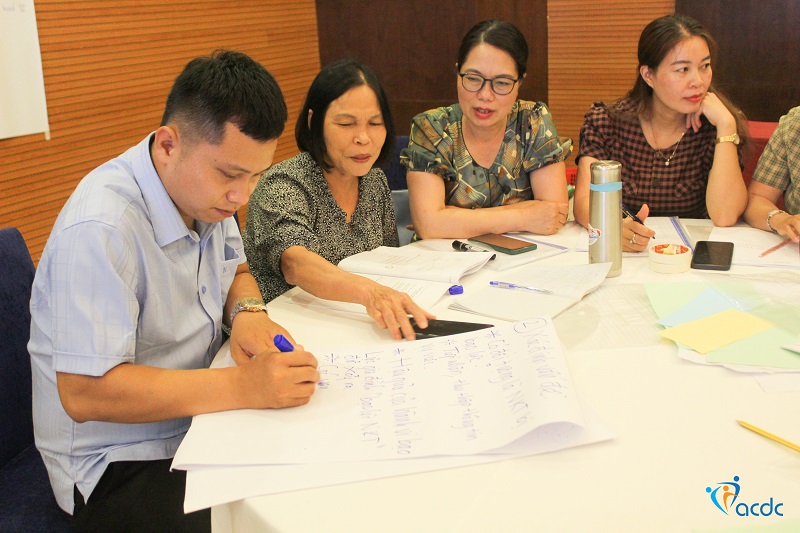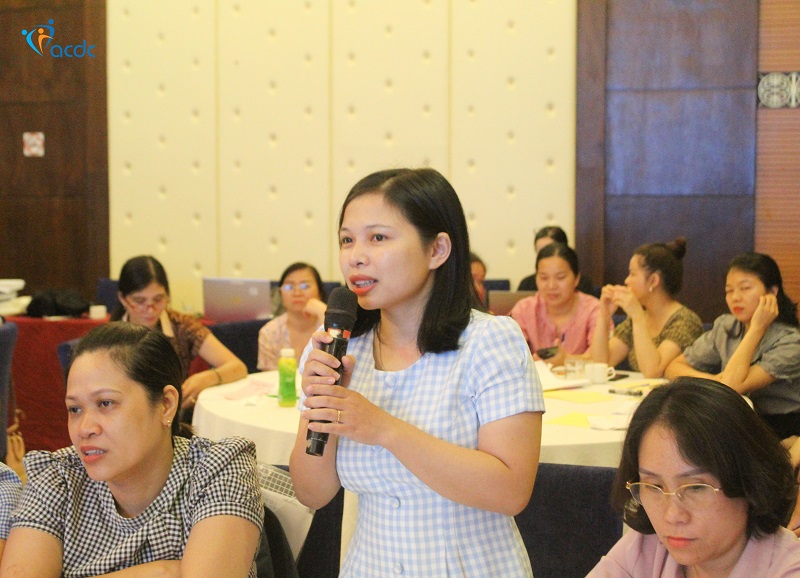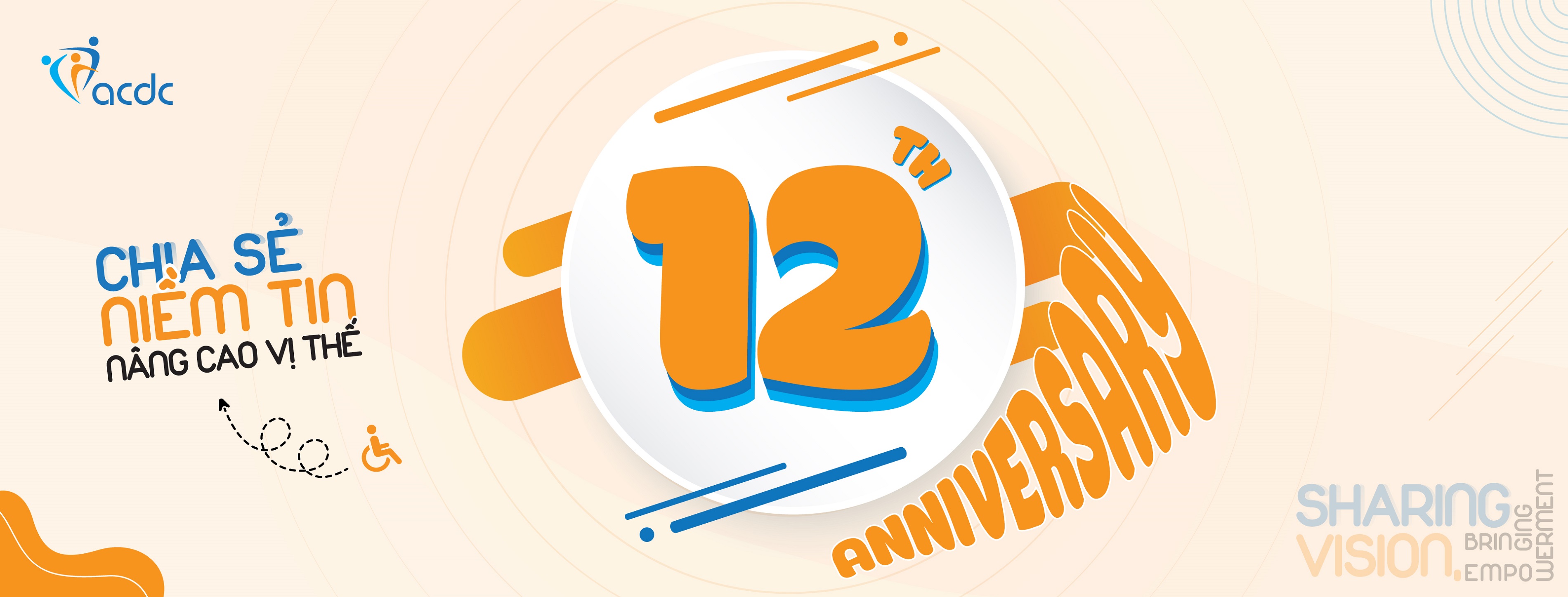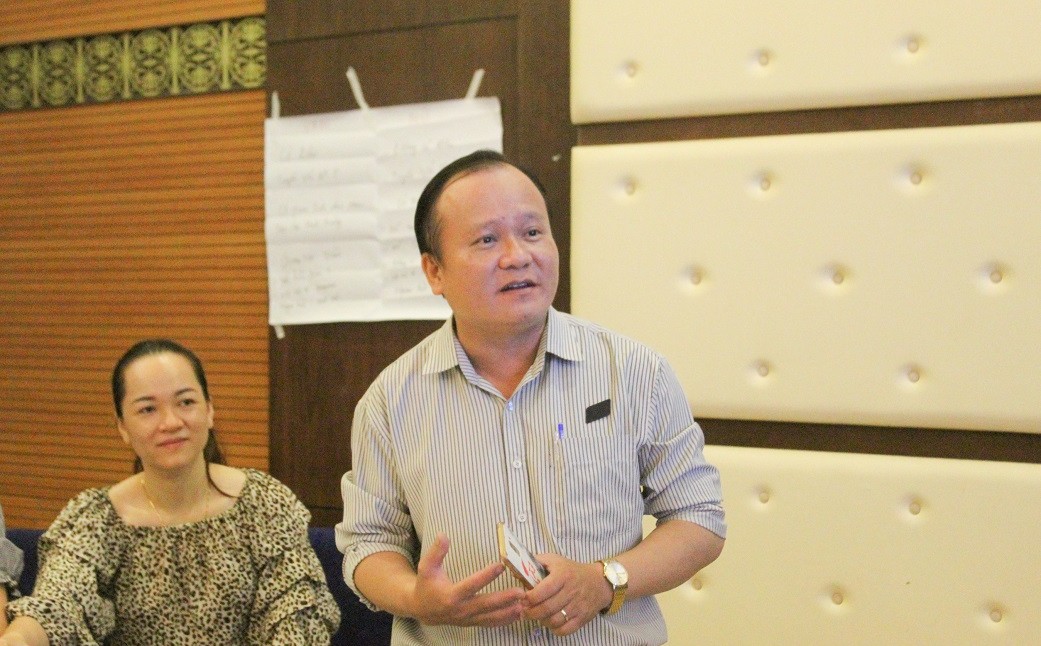Of the 150 women and girls with disabilities in Cam Lo, Trieu Phong and Dong Ha cities in Quang Tri province, up to 24.3% had experienced physical, mental and economic violence and 14.2% had experienced sexual violence. This is the result of the investigation on gender-based violence (GBV) of the project "Strengthening opportunities and enhancing the status of persons with disabilities – phase 2" conducted in March 2022.
This is an alarming number related to the violence of women and girls with disabilities, which requires the participation of many agencies. Therefore, on June 14-15, 2022, within the framework of this project, ACDC cooperated with the Project Management Board to organize training "Gender-based violence against persons with disabilities for health and legal aid officials" in Quang Tri province. The training course aims to enhance the ability to prevent GBV with women with disabilities of relevant agencies and form local networks to support GBV cases for women and girls with disabilities.

The participants in a group exchanged and discussed with each other about content related to gender violence
Ms. Le Thi Thuy Huong - Program Manager in the Central Region, Department of Healing and Development, USAID in Vietnam and Mr. Thai Vinh Lieu - Chairman of The Association of Persons with Disabilities, NNDC, BTNKT and Provincial Health Department - Head of Project Management Board attended and gave the opening speech and the training class. The activity was attended by 45 trainees who are officials of the health sector, Legal Aid, Women's Union, Provincial Association of Persons with disabilities and from 03 districts of Huong Hoa, Dakrong, Hai Lang. Ms. Nguyen Thi Thu Ha - Gender Expert - Hagar Vietnam Organization is the lecturer of the training class.
With many intertwined training methods such as playing games, discussing in large groups or small groups, storytelling, along with professional knowledge, practical experience, lecturers have shared many rich contents related to GBV. In particular, the two main topics that the participants actively practice and exchange are the management of GBV cases and establishing the network to support cases of GBV.

Participant spoke about difficult situations encountered in gender-based violence against persons with disabilities
Mr. H.T.H working at Ba Tam Commune People's Committee, Dakrong District shared: "The content of this training class is very meaningful and very practical, which has helped me understand more deeply about gender violence against persons with disabilities. From there I can support persons with disabilities locally most effectively."
Mr. T.D.N, who works at The Legal Aid Center of Huong Hoa District, shared: "In the course of my work, I also managed some cases of violence. Through her lecture on the steps to implement gender-based violence case management, I have helped me better understand how to apply it to reality."
Ms. H.T.H, who works at The Xuan Hoa District Medical Center, shared: "For the first time, I participated in a training course on gender-based violence against persons with disabilities. I find this issue very important and urgent because the consequences for persons suffering from GBV are very heavy. To solve this problem, it is necessary to mobilize a lot of agencies and resources to support persons with disabilities. Personally, after this course, I will be more proactive in detecting and supporting intervention of persons with disabilities who are victims of gender-based violence."
Through the training class, practitioners also participated in the Zalo group supporting GBV in Hai Lang, Huong Hoa and Dakrong districts to form an information sharing network group and coordinate to support cases of violence or risk of local violence. The project operated within the framework of the project funded by the United States Agency for International Development (USAID).





0 comments
More comments